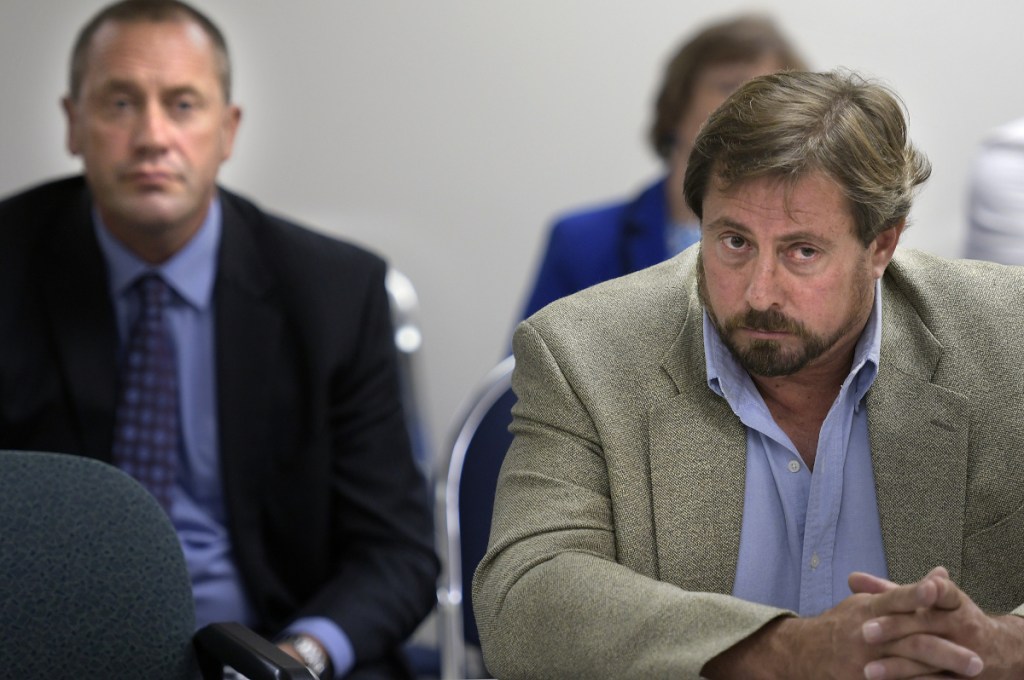Mark Andre seems intelligent, focused and well-spoken. He’s the Republican candidate for the House District 110 seat, representing parts of Oakland and Waterville, running against incumbent Democrat Colleen Madigan.
Andre is one of many candidates not receiving the Clean Election funding they qualified for, and he’s spent a lot of time with the Commission on Governmental Ethics and Election Practices to plead for relief. He makes a compelling case.
Although many candidates have been shorted, Andre has been perhaps uniquely disadvantaged. Most Clean Election candidates got at least some money before the end of June when, because of a statutory typographical error everyone’s known about for at least a year, the commission no longer had authorization to disperse money.
Though Andre won his June 12 primary, his opponent requested a recount, and because of the extra work involved in the first ranked-choice voting primary election, the recount was delayed until after July 1. As a result, Andre has received no money at all.
The Republican candidate is certainly within his rights, but he’s also in denial about who’s responsible for the Clean Election snafu: It’s the political party he belongs to.
Clearly, the election commission has no legal authority to spend. So when Andre pressed Jonathan Wayne, the even-keeled and highly respected commission director, for answers, Wayne gently suggested he might talk to Republican House Leader Ken Fredette.
Fredette is the one who’s blocked legislative efforts to fix the typo — normally a routine matter — because he wants concessions elsewhere from Democrats, and apparently from Senate Republicans, who’ve long since agreed to fix the typo.
Andre decided Wayne’s suggestion was inappropriate, and renewed his pressure on the election commission. It won’t work; the commission can’t act.
It gets worse. In addition to Fredette’s refusal to correct the drafting error, Gov. Paul LePage refuses to sign a financial order releasing $1.4 million, forcing Citizens for Clean Elections to seek a court order to require it.
No one imagined these events happening a few years ago. Politics in Maine was fought, clean and hard, by Republicans and Democrats for more than a century. Before now, no one contemplated ignoring the rules to gain advantage, real or imagined.
But that’s exactly what LePage and Fredette are trying to do.
A financial order is an administrative detail, not a license to block spending a governor dislikes. Even Richard Nixon, the president who originated “impoundment” against the Clean Water Act authored by Maine’s Sen. Ed Muskie, used it for a single purpose — blocking federal grants for sewage treatment plants he believed were too generous.
The U.S. Supreme Court voided Nixon’s attempt to nullify congressionally authorized spending. Until now, however, no one has gone to court challenging LePage’s far more extensive inpoundments, shutting down bond issues authorized by voters, refusing to hire public health nurses, and quashing pretty much any legislatively authorized spending the governor disagrees with. This cannot stand.
The Clean Election Act was enacted by voters in 1995 to provide an alternative to the big-money, privately funded campaigns that have only mushroomed since then, particularly since the Supreme Court’s atrociously reasoned 2010 Citizens United decision.
In a lesser known 2011 decision, authored by Chief Justice John Roberts, the court disallowed matching funds that were a key component of Maine’s law. Roberts insisted states couldn’t create a “level playing field” for candidates, that private funding must always carry an advantage.
Legislative Republicans then blocked adjustments to address the decision, but voters agreed to amend the law in a 2015 referendum to allow Clean Election candidates to raise additional money when they’re outspent, rather than simply receiving equal funding, as before.
When the public financing system began two decades ago, more Democrats than Republicans used it. Over the years, participation became more nearly equal, and, at its peak — before Justice Roberts intruded — nearly three-quarters of legislative candidates participated.
It only makes sense. Running for House or Senate without having to raise money first helps candidates do what we want them to: engage with voters and find ways to represent them. The partisan issue faded until it was revived, full force, by LePage and his willing assistant, Fredette.
Mark Andre is absolutely right that he’s met the requirements for Clean Elections funding. But unless he’s willing to speak with his fellow Republicans — or a judge orders funds released, and that decision is upheld — he’s out of luck.
Pretending that there are no consequences for bad political behavior, in the end, fails the reality test. Andre is smart enough to know this, but can he muster the integrity to apply that knowledge? There are less than 100 days left to find out.
Douglas Rooks has been a Maine editor, opinion writer and author for 33 years. His new book is “Rise, Decline and Renewal: The Democratic Party in Maine.” He lives in West Gardiner, and welcomes comment at: drooks@tds.net
Send questions/comments to the editors.



Comments are no longer available on this story